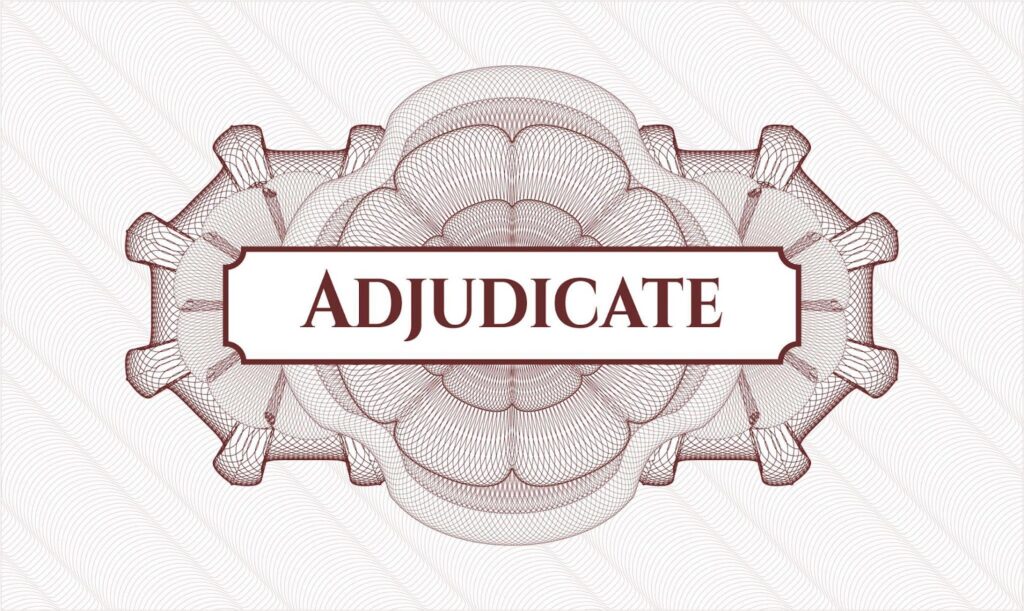
[meta description: Adjudicated background checks are used for companies to compare an employee’s results against company policies. Learn more about adjudicated background checks.]
Background checks are an important part of the workplace, and almost every company has a process for verifying an employee’s work history, criminal records, and identity. While background checks are common, they’re not all the same. Most companies have a unique adjudication process to screen employees to determine if they’re a good fit for a position. The adjudication process usually involves comparing an employee’s test results against a company’s policy.
Read on to learn more about what an adjudicated background check is and how you can prepare.
What Is a Background Check?
A background check is a process that involves an individual, company, or government agency looking into someone’s public records. The most common time to run a background check is when someone is applying for a job; these are known as pre-employment background checks, and companies and government employers use them to verify someone’s identity.
Background checks also check for criminal records, may include drug screenings, and can even check employment history and contact references. While background checks pull public records for employers to view, it doesn’t mean anything until it’s adjudicated based on company policies.
What Is an Adjudicated Background Check?
An adjudicated background check is a background check that’s been reviewed by a company; this is known as the adjudication process. Each company will have an adjudication process that determines what flags someone as not a good fit for the job. A great example is someone who is applying for work in a bank or financial institution.
The adjudication process may compare someone’s financial records with the minimum standards the institution has for people who will work there. This can also apply to drivers and even traditional office work. People who fail an adjudicated background check have to be sent a notice of adverse action.
What Is Adverse Action?
Adverse action is a part of the adjudication process, and it’s where employers disqualify an applicant from the hiring pool. When the company takes an adverse action someone has to notify the person being fired or disqualified for employment. This is due to the Fair Credit Reporting Act (FCRA) that states that companies need to be upfront about reasons they disqualify someone from employment or promotions.
Most companies send a letter to notify employees that they won’t be hired. This can be done in two phases: the pre-adverse action notice and the final adverse notice. The pre-adverse action notice involves employers notifying employees about their rights and why they might not pass the background check. On the other hand, the final adjudication letter will have the company’s decision and their reason for not hiring you.
What Are the Types of Adjudication for Background Checks?
Every company has unique policies but there are two primary methods for adjudicating a background check. The first method is manual adjudication, which involves someone manually reviewing all of the applications. When someone is reviewing the information manually they will look through someone’s background check and compare it to company policy. While it’s an effective method, the drawbacks include human error, bias, and even forgetting to start the adjudication process.
The other adjudication method is automated. An example of this can be something as simple as having a website that flags people who have certain things on their resume. Human oversight is available with automated adjudication, but errors are sometimes still made. You can usually find this service being offered by third-party background check agencies. Some online background check companies also offer adjudication options that you can choose from and customize.
Master Adjudicated Background Checks
An adjudicated background check is just a background check that has been compared to company policies. Whether you’re an applicant who is worried about passing or an employee who wants to create adjudication processes, understanding how they work is essential. Employers can create adjudication processes by having specific criteria that function as red flags, and applicants should prepare for these types of background checks by checking the company’s policies before applying.
Preparing for an adjudicated background check can also be done by leveraging a free people finder. These tools will help you reveal your public records, which you can then compare to a company’s adjudication process before you apply. This can save you time and money on upcoming background checks.
